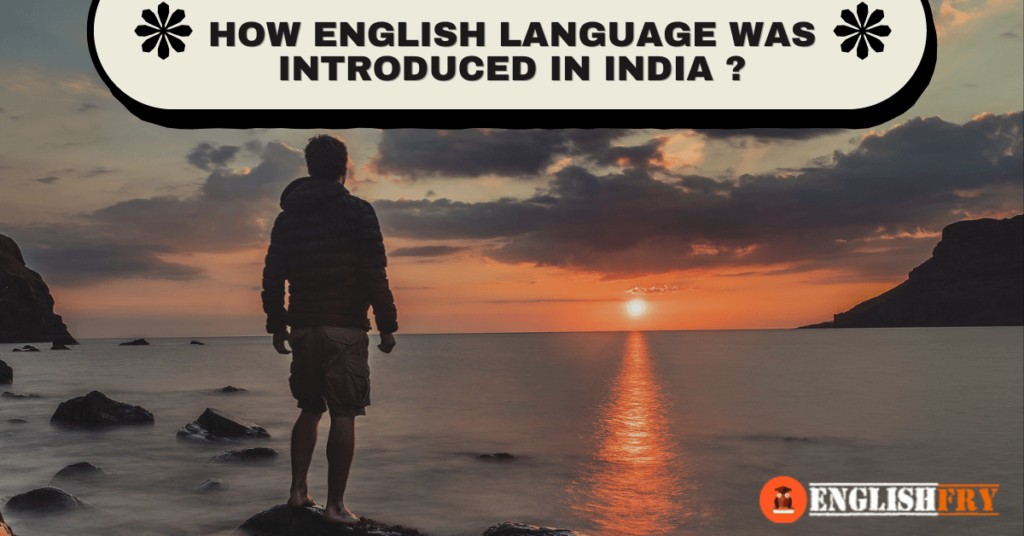Table of Contents
ToggleIntroduction
Welcome to the intriguing world of English language and literature, where words come alive and stories unfold . The power of language and the beauty of literature have captivated minds and hearts for centuries. In this comprehensive guide, we will delve deep into the realm of English language and literature, exploring its significance, uncovering its rich history, and providing valuable insights on studying and appreciating its wonders. Whether you are an aspiring student, a literature lover, or simply curious about the subject, this blog post will empower you with the knowledge and tools to explore, analyze, and cherish English language and literature.
The Significance of English Language and Literature
English language and literature hold immense importance in our global society. As the most widely spoken language in the world, English acts as a bridge, connecting people from diverse cultures and backgrounds. Additionally, literature serves as a reflection of human experience, offering insights into the complexities of our emotions, relationships, and societal structures. By embracing and studying English language and literature, we open doors to improved communication, critical thinking, cultural awareness, and personal growth.
A Journey Through the History of English Language and Literature
1. Origins and Evolution of the English Language
The English language traces its roots back to the Anglo-Saxon period when tribes from what is now Germany and Denmark settled in Britain. This period gave birth to Old English, a language vastly different from what we speak today. Over time, the Norman Conquest in 1066 brought the influence of French and Latin, leading to the emergence of Middle English. Finally, through further evolution and global exploration, Modern English emerged as a language of profound reach and influence.
2. The Evolution of English Literature
English literature has evolved alongside the language, showcasing the artistic and intellectual developments of different periods. From the Renaissance, which ignited a passion for knowledge and exploration, to the Enlightenment, which fostered rational thought and societal progress, literature has served as a mirror to the aspirations and conflicts of society. Each era, from Romanticism to Victorian literature, Modernism to contemporary works, brings forth distinct themes, styles, and voices that continue to shape the literary landscape.
Unlocking the Power of Studying English Language and Literature
Studying English language and literature yields a plethora of benefits that extend beyond the realm of academia. Here are some compelling reasons to embark on this enriching journey:
Enhancing Communication Skills:
English language and literature studies nurture language proficiency, effective writing, and oral communication skills, enhancing both personal and professional interactions.
Developing Critical Thinking and Analytical Abilities:
Through the analysis and interpretation of literary works, students develop critical thinking skills, honing their ability to synthesize information, evaluate arguments, and form independent thoughts.
Gaining Cultural and Historical Insights:
Literature acts as a gateway to understanding the cultural and historical contexts in which it was created, shedding light on different societies, beliefs, and perspectives throughout time.
Cultivating Empathy and Emotional Intelligence:
Exploring characters’ experiences, emotions, and dilemmas in literary works allows readers to develop empathy, emotional intelligence, and a deeper understanding of the human condition.
How to Study English Literature Effectively
Engaging with English literature requires a skillful approach that allows readers to unlock the layers of meaning within a text. Here are some strategies to study English literature effectively:
1. Reading Strategies for Engaging with Literary Texts
Active Reading Techniques:
Actively engage with the text through annotations, underlining key passages, and jotting down initial thoughts and reactions.
Annotating and Taking Effective Notes:
Highlight important themes, symbols, and literary devices, and make note of key plot points, character development, and any questions or insights that arise.
Engaging with Themes and Literary Devices:
Identify recurring themes, symbols, and motifs within the text, and explore how they contribute to the overall meaning and impact of the work.
2. Approaching Literary Analysis with Confidence
Identifying and Analyzing Literary Elements:
Familiarize yourself with common literary elements such as plot, character, setting, symbolism, and imagery. Identify their presence in the text and analyze their significance.
Uncovering Subtext and Symbolism:
Delve beneath the surface of the narrative to identify underlying meanings, subtext, and symbolism that can unveil deeper layers of the story.
Considering Historical and Social Context:
Explore the historical and social backdrop against which the text was written. Consider how these factors influenced the author’s perspective and the thematic elements conveyed in the work.
3. Exploring Different Literary Genres and Styles
Poetry: Delving into the Power of Words
Immerse yourself in the beauty and power of poetic language, exploring various forms, such as sonnets, haikus, and free verse. Pay attention to the rhythm, meter, and imagery employed by poets.
Prose Fiction: Immersion in Narratives and Characters
Experience the art of storytelling through novels and short stories. Analyze character development, narrative structure, and the author’s unique writing style.
Drama: Unraveling the Essence of Human Conflict
Dive into the world of plays and theatrical works. Examine dialogue, stage directions, and dramatic devices to gain insights into the complexities of human relationships and societal dynamics.
Harnessing the Resources for English Language and Literature Study
To support your journey of studying English language and literature, a multitude of resources are available. Here are some invaluable tools and platforms to assist you:
Utilizing Libraries and Digital Archives:
Local libraries provide access to a vast collection of literary works, both in physical and digital formats. Online archives and databases, such as Project Gutenberg and Google Books, offer additional resources for literary research.
Online Platforms and Educational Websites:
Explore online platforms dedicated to literature, such as Goodreads, where you can discover new books, track your reading progress, and engage in discussions with fellow readers. Educational websites, like Khan Academy and Coursera, offer courses and lectures on English literature that complement traditional learning.
Joining Literary Communities and Discussion Groups:
Engage with like-minded individuals by becoming part of literary communities and discussion groups. Online forums, book clubs, and social media platforms provide opportunities to exchange ideas, gain different perspectives, and develop a deeper appreciation of literature.
Conclusion
English language and literature have the power to shape minds, foster connections, and provide solace in the written word. By delving into this vast realm, embracing its rich history, and studying its nuanced nuances, we embark upon a journey of personal growth, expanded knowledge, and heightened cultural awareness. So, let us open our hearts and minds to the magic of English language and literature, and explore the endless possibilities that await us. Engage with the beauty of words, analyze the complexities of human experiences, and cherish the wisdom woven into the fabric of literature. Let us revel in the majesty of English language and literature and continue to learn, grow, and be transformed by their everlasting power.
Founder of Englishfry.com, a captivating and knowledge-driven blog & Founder of Android app/website Studyfunnel.com, an online Mock Test Series Portal. With a wealth of experience spanning over 16+ years, he has excelled as an Ex-professor, Teacher, Author of Book “Island of Illusion”, Website Developer, Graphic Designer,Blogger,Poet, and Creative academic content writer. His tryst in Literature helped him realize his love for writing and telling stories. A tech-savvy language nerd by day and, a passionate writer by night, he now translates his experiences into tales of wisdom served with a side of humor.His widely recognized profound insights ,captivating writing style makes him contribute to prestigious publications and a sought-after authority in the field.








